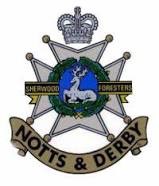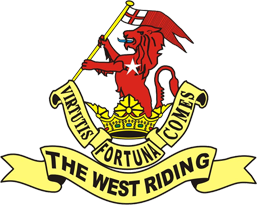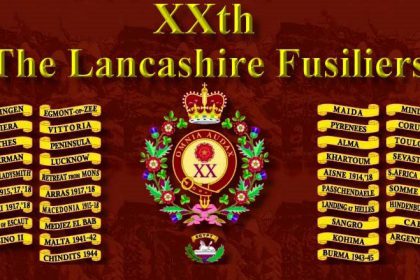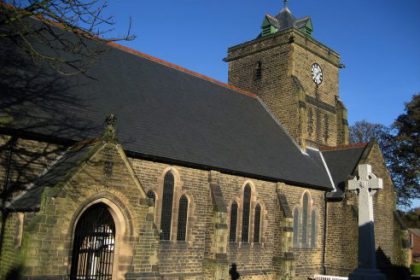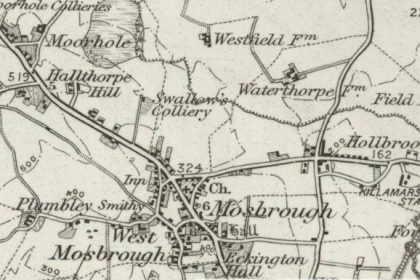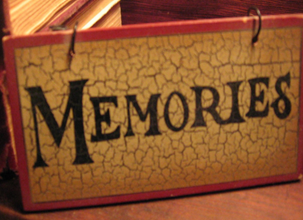Saturday, November 23, 1861
As it is our mournful duty to record in our columns, the death of a gentleman, long most useful and ever most highly esteemed in Sheffield, who has just terminated his mortal career, in the 90th year of his age, we trust to be excused in making the past our subject for one day, instead of writing on the topic of the hour.
For nearly 50 years, the late Hugh Parker lived in and for Sheffield. To it was devoted his time, his intellect, and his fortune. And through nearly 20 years have elapsed since he retired from among us, and a new generation has risen up that knew him not, it becomes those whose lives have extended over a longer range, to record Mr. Parker’s character and his labours, and to acknowledge how deep is the debt of gratitude he has left upon us.
Appended we give some account of Mr. Parker’s family. It is enough to say here that he was the son and heir of a gentleman popularly called “Councillor Parker,” of Woodthorpe. He was born in 1772, and on the death of his farther, in 1794, he succeeded to the Woodthorpe estate. In 1799, Mr. Parker qualified as a magistrate, and not long afterwards, he joined the Messrs, Shore, as a partner in the Sheffield Old Bank.
When Mr. Parker became a magistrate, he sat at the feet of his venerable senior, “Justice Wilkinson,” then vicar of Sheffield. Mr. Wilkinson was a Whig, and had long held sway ecclesiastical and judicial in the town. No doubt he was glad to be joined in his labours by a young gentleman of the neighbourhood of kindred politics. In those days, Church and King magistrates had the ascendancy in the country generally, and severe laws were often administered harshly. Mr. Wilkinson had a truly Whig regard for popular rights and for constitutional liberty, and was careful to temper justice with mercy. These views harmonised both with Mr. Parker’s principles and character, and when the death of Mr. Wilkinson left him almost the sole occupant of the bench here, he practiced the lessons he had so well learned. Mr. Wortley, (the first Lord Wharncliffe,) the Rev. Dr. Corbett, the Rev. W. Alderson, and the Rev. G. Chandler, were afterwards appointed magistrates.
We believe the only Whig colleague whose support Mr. Parker enjoyed, was the Rev. Mr. Lowe, of Wentworth, yet his assiduity, his residence on the spot, and the public regard, so established Mr. Parker’s influence, that he really was the presiding spirit on the Sheffield bench. Mr. Parker was patient to a fault. His integrity was blended with a mildness in the administration of justice that contrasted greatly with the then spirit of the laws and the general temper of the magistracy. In dealing with questions between master and man, he showed a high sympathy for the liberty of the subject, and an especial regard for the feelings and interests of the humblest. It is said of Mr. Parker that he never passed a severe sentence. His patience, his love of mercy, his constant desire to find some way by which disputes might be settled without exercising the compulsion of the law, often tried seriously the temper of complainants, but imparted an almost paternal character to his administration.
Mr. Parker had to pass through times very different from those in which it is our privilege to live. War, deranging trade and producing scarcity; bad harvests, not mitigated as now by large importations from abroad, compelling people to eat the most unwholesome food; political discontent assuming its most dangerous forms, and driving the mildest of magistrates to invoke the aid of the military power; conspiracies among workmen, ere the law permitted combinations; the employment of spies by the Government, placing magistrates in the most painful dilemmas between their duty to the Crown and their duty to the country;- all these, and many other complications and difficulties now forgotten, beset
Mr. Parker in his magisterial duties formed one of the main concerns of his life. He was as much devoted to them as other men are to the care of their business or their families. He watched over the public welfare with incessant care, and he was accessible to individuals of any station who sought his counsel and his aid. As age crept on, he became anxious to see other arrangements made, not only to continue his work, but to provide for the growing requirements of the town. In 1836, he addressed a letter to the Improvement Commissioners, suggesting that application should be made for a municipal charter, or for a stipendiary magistrate, or for an augmentation of the bench of magistrates.
The Commissioners recommended the latter course, and a number of gentlemen were put upon the commission of the peace, but very few of them qualified. In 1840, the West Riding magistrates took steps for the application of the County Constabulary Act to the West Riding. Mr. Parker again wrote to the Improvement Commissioners, pointing out the effect of the measure, and suggesting the application for a charter. After repeated struggles, this was obtained in 1843; but ere that time the protecting care which Mr. Parker had so long exercised over the public welfare was withdrawn by disasters of which we have yet to speak.
Throughout his long career, Mr. Parker actively promoted the success of Liberal principles, and aided in all measures of benevolence and public improvement. In the great contest of 1807, he was the chairman of Lord Milton’s Sheffield committee. We find his name constantly occurring where deeds of charity were to be done, or religion and education were to be promoted. He was concerned in obtaining the act for the act for the canal, and laid the first stone of the basin in 1816. He promoted the first gas company, and the act for lighting and improving the town passed in 1818. In the struggles to induce the Midland Company to avoid the mistake of leaving Sheffield off their main line, he was active and influential. And indeed, we know not where to turn to find the record of efforts to benefit the town, or avert evil, or promote prosperity, or relieve distress, in which Mr. Parker was not potentially present. The public esteem would have found expression in 1832, in the return of Mr. Parker to parliament, if his consent could have been obtained. As this was impossible, men of all parties tendered their support to his son, and for twenty years Mr. John Parker sat for the borough, always returned at the head of the poll.
It was Mr. Parker’s misfortune, not possessing those firm qualities which are necessary to conduct banking safely, that he was induced, at an early period of his life, to join the Messers. Shore in the Old Bank. The bank had a splendid business, and enjoyed great confidence among all classes. Its profits were large. But unfortunately the kind-hearted and gentlemanly partners never could bring themselves to say, No. Many people prospered and grew rich by virtue of the aid the bank gave them. But many went on from year to year, getting deeper and deeper into the books of the bankers, who at last, towards the termination of the longest and most terrible series of bad years in our commercial history, succumbed. On the 16th January, 1843, the bank stopped, and then were seen such gloom and dismay in Sheffield as we trust may never occur again. Mr. Parker remarked, in returning from one of the sad scenes that took place that year at Leeds, that the town had had all his fortune and the fortunes of his partners. After struggling for years, exercising the utmost care and doing all that could be done, excepting to refuse credit to many who should not have had it, Mr. Parker bore with a notable fortitude the disasters that overwhelmed him, and withdrew into the retirement from which he never returned. Mr. Parker continued to enjoy good health until the last. He lived for some years at Tickhill, but latterly at Doncaster, where he was in the more immediate neighbourhood of several members of his family.
Last week, he was affected with a dizziness which caused some apprehensions, but they seem to have abated. On Thursday morning, an attack of shivering came on, and though every means were used to rally the powers of life, they gradually ebbed, and early on Friday morning Mr. Parker peacefully expired. His elder son, the Right Hon. John Parker, and other members of the family, had the mournful satisfaction of being present at the closing scene. It is expected that Mr. Parker will be interred on Wednesday, at Healaugh, near Tadcaster, where the remains of his wife repose.
The removal of a gentleman at so advanced an age, who has been withdrawn from amongst us many years, cannot be said to create a gap in Sheffield society. But it were most ungrateful if the press did not commemorate the departure of so useful, so good, and so venerable a man. For the life-time of a whole generation, Mr. Parker gave a tone to the administration of justice, to the commercial and political affairs of the town, and aid to all its efforts at improvement. He served the public disinterestedly, and lost his fortune in the service. The least we can do is to hallow his memory, and assign him a foremost place among the Sheffield worthies.
Family of the late Hugh Parker, Esq.
John Parker, of Little Norton, who lived in the reign of Queen Elizabeth (1558 to 1603), was the father of…
John Parker, of Little Norton and Jordanthorpe, baptized 1575, married in 1601 to Dionysia, daughter of Thomas Bright, of Bradway, and sister of Stephen Bright, of Carbrook. She dying, he married, secondly, Jane, the daughter of James Bate, of Jordanthorpe. By her he left a son…
John Parker, of Little Norton, baptized 1607, married 1632 to Elizabeth, daughter of Geoffrey Roberts, of Dronfield. They left a son…
Rowland Parker, of Little Norton and Jordanthorpe, baptized 1640/1. His son…
John Parker, baptised 1664, married Mary, daughter of William Staniforth, of MOSBOROUGH HALL. Their son was…
John Parker, baptised 1664, of Greystones and Woodthorpe, who married Mary, daughter of Samuel Staniforth, of MOSBOROUGH HALL.
The Woodthorpe property came into the Parker family at this time, by the bequest of John Woodrove, who, by will dated 10th September, 1718, bequeathed his property to his kinswoman, Anna Cade, and she, dying without issue, to his kinsman, John Parker, described as the son of John Parker, late of Greenhill. Tradition says that when John Parker heard of the death of Mrs. Cade, he through down the hammer with which he was working, and declared his son should go to college. Hence we have…
John Parker, of Woodthorpe, barrister-at-law, still spoken of in the neighbourhood as Councillor Parker, who married Alice daughter of Hugh Marshall, of Horsforth. He died in 1794, and according to the custom of the family, another John Parker should have succeeded; but death claiming the eldest son, the estates devolved on the second son…
Hugh Parker, late of Woodthorpe, J.P. and D.L., born 11th September, 1772, and married 20th September, 1798, to Mary, daughter of Samuel Walker, of Masborough. His eldest son is…
The Right Honourable John Parker, born 21st October. 1799; married in 1853, Charlotte Eliza, second daughter of George Vernon, Esq., of Clontarf Castle, near Dublin.
The other children of the late Mr. Parker are:-
Samuel Parker, born 1801, married 1842 Clara, daughter of Joshua Ryle, Esq., of Carlshalton, Surrey, by whom he had a son, John-Hugh, and daughter, Mary-Clara.
Hugh Parker, born 1808, married in 1838 Sarah, daughter of the Rev. Jonathan Alderson, of Harthill, and died in Ireland, of fever contracted in administrating relief to the people during the famine of 1847.
Mary, wife of the Rev. E.H. Brooksbank, J.P., vicar of Tickhill, now of Healaugh.
Harriet, wife of E.V. Pegge Burnell, Esq., of Winkbourn Hall, Notts.
Sarah.
Alice Elizabeth, wife of W. Walker, Esq., of Wilsick.
Margaret Caroline, wife of C. Jackson, Esq., of Doncaster.
The portrait of the late Mr. Parker, which is placed in the Dining-hall of the Cutler’s Company, was painted in 1829 by Mr. W. Poole, in consequence of the vote of the Company, as a tribute of respect to Mr. Parker.
Copyright © Roger Marsh 2018

